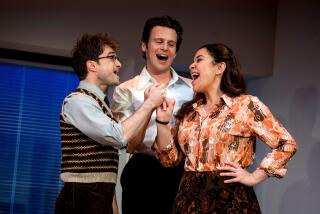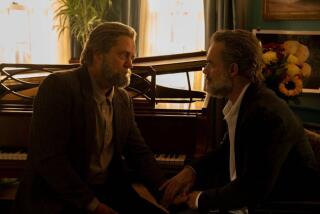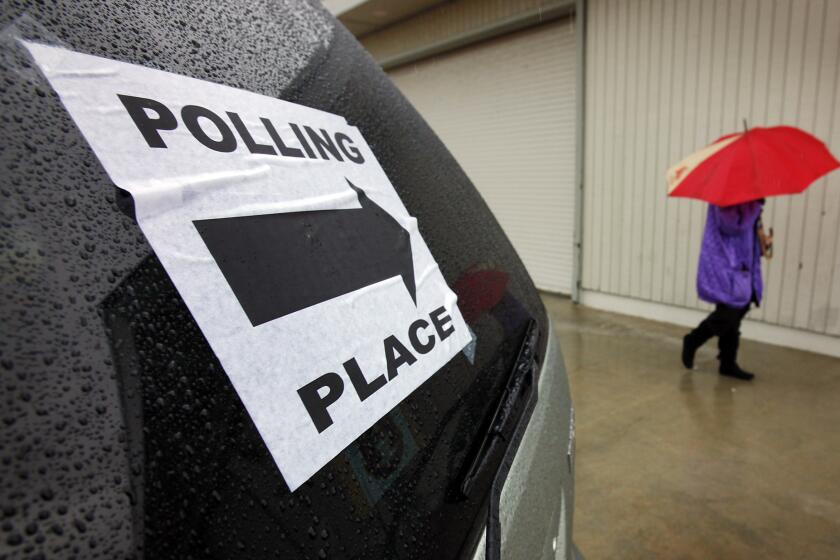When Friendship Is the Only Thing That Matters
My father rarely talked about the war. Occasionally, he mentioned something funny a soldier had said in battle, or recalled the bottles of pink champagne his platoon discovered in an abandoned German hotel or described a good luck scarf his lieutenant wore.
On rare occasions he briefly recounted more dramatic wartime tales. The one that always intrigued me was the story about Frank, his best friend during the war, and how he had saved my father’s life. It was during the Battle of the Bulge. My father, a private in the infantry, slipped on the snow and fell into a deep ravine. Frank helped pull him out. And that is all my father had ever told me.
Growing up, I always wanted to know exactly what happened on that day in 1945. And I always wanted to know why my father and Frank, who had such a close friendship, a friendship forged by combat and by extended months on the front lines, no longer talked. But my father was reluctant to elaborate on his war experiences and I felt uncomfortable prodding him.
For a few years following the war, my father and mother saw Frank frequently. Then Frank disappeared. My parents tried to track him down, but were unsuccessful. They wondered if he had joined the CIA.
About 10 years ago, the first part of the mystery was solved. Frank called my father, and they spoke for the first time in almost 40 years. It turned out he had been living in Los Angeles all this time.
Frank wanted to get together for dinner with my father and mother. But there was one thing Frank had to say. He wanted to bring a friend to the dinner. A male friend. A male friend who had been his companion for many years.
*
My father had never suspected Frank was gay. But it did not matter to him. He wanted to see Frank again and resume their friendship. So they set a date and the two couples met for dinner.
They saw each other a number of times after that. And when my father retired, they spoke several times a week on the telephone. Sometimes, when I visited my parents’ house, I would hear them talking. Their conversations were long and boisterous and they would talk about buddies they had not seen since the war, they would talk about politics and they would talk about movies.
Movies sparked their friendship during the war. Their division, part of Patton’s 3rd Army, was filled with coal miners and hillbillies and farmers, some of whom had never seen a movie. But Frank and my father were movie fanatics. They loved movies and loved arguing about their favorite pictures. They argued about movies all through the war, and they argued about movies in those conversations after my father’s retirement.
I was grateful he and Frank had resumed their friendship. My father was a remote, eccentric man who had few friends and I could see how much he enjoyed those conversations.
A few months ago, shortly after my father died, I decided to visit Frank. This was an opportunity to finally discover what, exactly, happened on that day Frank saved my father’s life.
And I wanted to know more about Frank. Because of the controversy over gays in the military, I thought the story of Frank and my father was particularly pertinent.
If it wasn’t for one gay in the military, my father never would have survived the war, and I never would have been born.
*
One evening after work I stopped by Frank’s apartment. He poured a Scotch and water for me and his companion, who had served in the South Pacific during the war. Then he removed from a drawer all his wartime memorabilia.
Frank recalled how he and my father shipped out to England with their regiment on the Queen Mary, and how movies were shown all over the deck. Both Frank and my father slipped away from their company so often to watch the movies they had to do KP duty for a week.
Frank told me about a battle in France when they met the German army head-on for the first time, how they fought their way across Belgium and Luxembourg and Germany, how he and my father won their Bronze Stars, how they grew accustomed to being awakened every morning to the sound of shelling. Finally, I asked him to tell me about the day he saved my father’s life.
The battle was in Luxembourg, Frank said, taking a sip of his drink, during the final days of the Battle of the Bulge. Their regiment was sent to take out a German artillery emplacement hunkered down on a hillside about five miles away.
It was a dull, winter day, the sky the color of gunmetal, the ground covered with snow. The regiment headed out through a narrow trail at the edge of a mountain dotted with pine trees and boulders. They could not have been more vulnerable. The Army’s white camouflage gear had never reached them. So their olive drab overcoats, highlighted against the freshly fallen snow, presented a vivid target.
After they had marched about halfway, the Germans began firing their field artillery--88-mm flat-trajectory guns that all infantrymen feared because of their pinpoint accuracy. They had brought down thousands of bombers during the war and killed tens of thousands of soldiers.
Almost half of the 800 men in my father’s regiment were either killed or seriously wounded before the assault was called off and the regiment was ordered to retreat. The dead included the company commander and the colonel.
As the regiment fled from the shelling, retreating by the same narrow route alongside the mountain, my father slipped and fell head over heels about 40 feet to the bottom of an icy ravine. As the other soldiers ran, Frank stopped and crawled down the ravine. My father was dazed and Frank shook him until he was able to walk. Frank then helped him scramble up the mountain as shells exploded around them.
“I remember,” Frank said, “the tremendous cracking sound from the incoming 88s . . . people yelling for medics and screaming: ‘I’m hit, I’m hit . . .’ I remember the blood and the images of people literally being blown apart. The images are still nightmarish to me.”
The lack of camouflage clothing and the poor intelligence contributed to a debacle, Frank said, that had more in common with Vietnam War foul-ups than the glorified battles of World War II.
I asked Frank why he risked his life to pull my father out of the ravine under such heavy fire. Frank, who seemed embarrassed by the attention, shrugged and said: “I just never considered not doing it.”
Frank is from a generation of gay men who are uncomfortable discussing their sexual orientation and gay issues. In fact, Frank did not want his real name used for this story. So when I brought up the subject of gays in the military, Frank would not elaborate on his views.
But whenever I hear all the rhetoric about the issue I think about Frank. And I recall one of the few things my father told me about that day he slipped into the ravine:
“I never would have made it out alone.”
More to Read
Sign up for Essential California
The most important California stories and recommendations in your inbox every morning.
You may occasionally receive promotional content from the Los Angeles Times.










